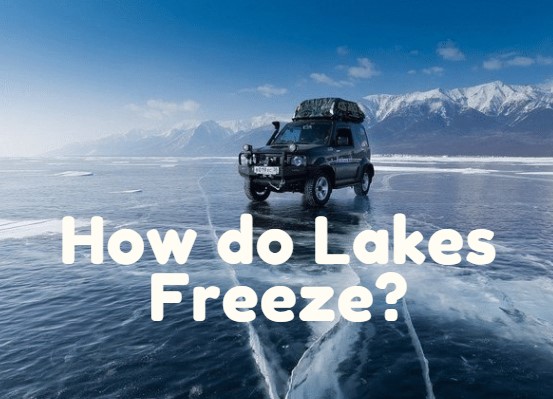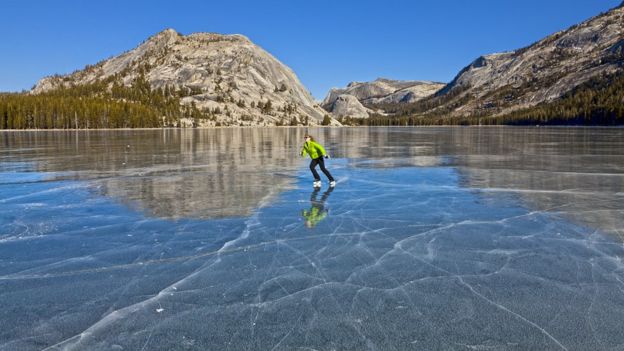
This article was originally published by NH LAKES.
Since early August when New Hampshire’s lakes typically achieve their warmest temperatures, our lakes have been cooling off and starting the freezing process. Here’s how it happens…
As the air temperature drops during late-summer, the temperature of the upper layer of the lake drops, too. The cooling surface water becomes heavier and denser—eventually to the point that it sinks toward the lake bottom and forces warmer, less dense water to the surface. The process of the upper layer cooling and sinking occurs until the temperature of all the water in the lake drops to approximately 39 degrees Fahrenheit—the point at which water reaches its maximum density.

At some point in November or December, as the air temperature and the water at the lake surface becomes colder than 39 degrees Fahrenheit, something rather unique happens—the water molecules at the surface spread apart and the surface water becomes less dense than the water below! This is unique because typically in nature as things get colder they contract not expand. This expansion allows the cooler surface water to float upon the slightly warmer (and more dense) water just below it. Once the surface water cools to approximately 32 degrees Fahrenheit, the water molecules crystallize into interlocking lattice-like patterns and ice is formed. The ice takes up more room than the water it was made from which makes the ice lighter (and less dense) than the water below it, allowing the ice to float on top of the water. If the ice was denser than liquid water, then the ice would sink and lakes would freeze completely from the bottom up. Since most aquatic organisms can’t survive being completely frozen, this would cause big problems in lake ecosystems!
Shallower lakes usually freeze before deeper lakes since shallower lakes contain less water that needs to be cooled down. And, lakes freeze from their perimeter towards the center since there is less water in the shallower areas that needs to be cooled.
How does the ice become thicker?
Once an ice film has formed on the surface of the lake and the air above the ice continues to be colder than the ice, the ice will thicken. The cold air above the ice causes heat to leave the lake water under the ice and from the ice itself. This causes the water below the ice to freeze into successively deeper layers. As the winter air gets colder and colder, the ice gets thicker and thicker until we can stand—and sometimes even drive—on it without falling through!
Why don’t lakes freeze completely?
At some point, the ice layer itself on a lake will act as an insulator, preventing the cold air above the ice to remove heat from the unfrozen water below. This is why lakes don’t typically freeze completely from top to bottom. The ultimate thickness of the ice layer depends on many variables including the size and shape of the lake, the air temperature, and the duration of the cold air above the ice. In some cases, very shallow lakes or lakes on mountain tops may freeze completely, but this is not often the case in New Hampshire.
Have a safe and enjoyable experience on our lakes this winter!
No matter what winter activity you enjoy most out on the lake, we hope that you have a safe and enjoyable experience. If you go out onto your favorite lake that appears to be frozen, it is extremely important that you follow basic ice-safety guidelines. For a copy of the “Safety on Ice” brochure, visit the New Hampshire Fish and Game Department’s website at www.wildlife.state.nh.us/outdoor-recreation/documents/ice-safety.pdf or call the Public Affairs Division at (603) 271-3211.
NH LAKES is the only statewide, member-supported nonprofit organization working to keep New Hampshire’s lakes clean and healthy, now and in the future. The organization works with partners, promotes clean water policies and responsible use, and inspires the public to care for our lakes. For information, visit www.nhlakes.org, email info@nhlakes.org, or call 603.226.0299.
This article was originally published by NH LAKES.
Re-posted by Scott Freerksen “The Lake Guy”
